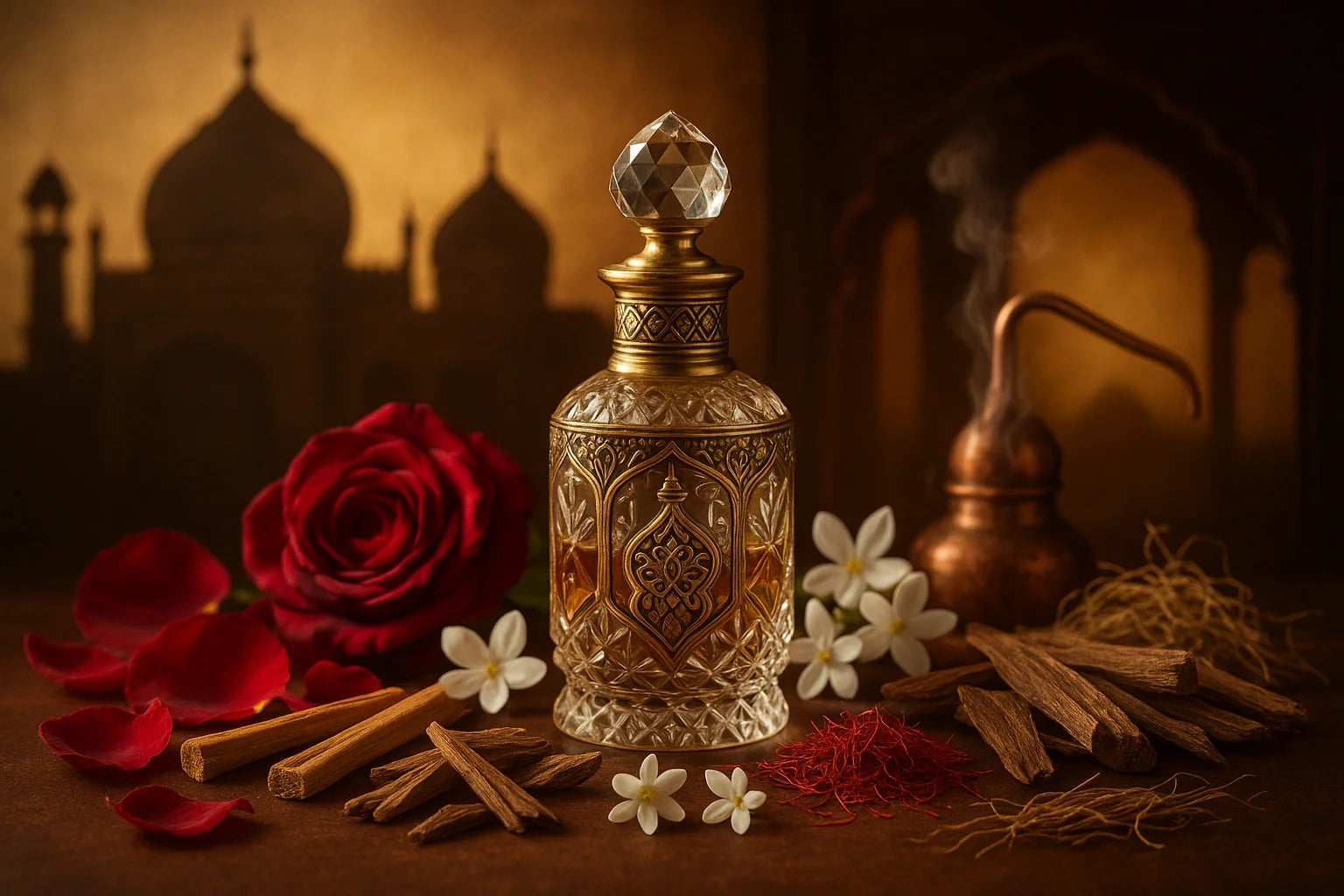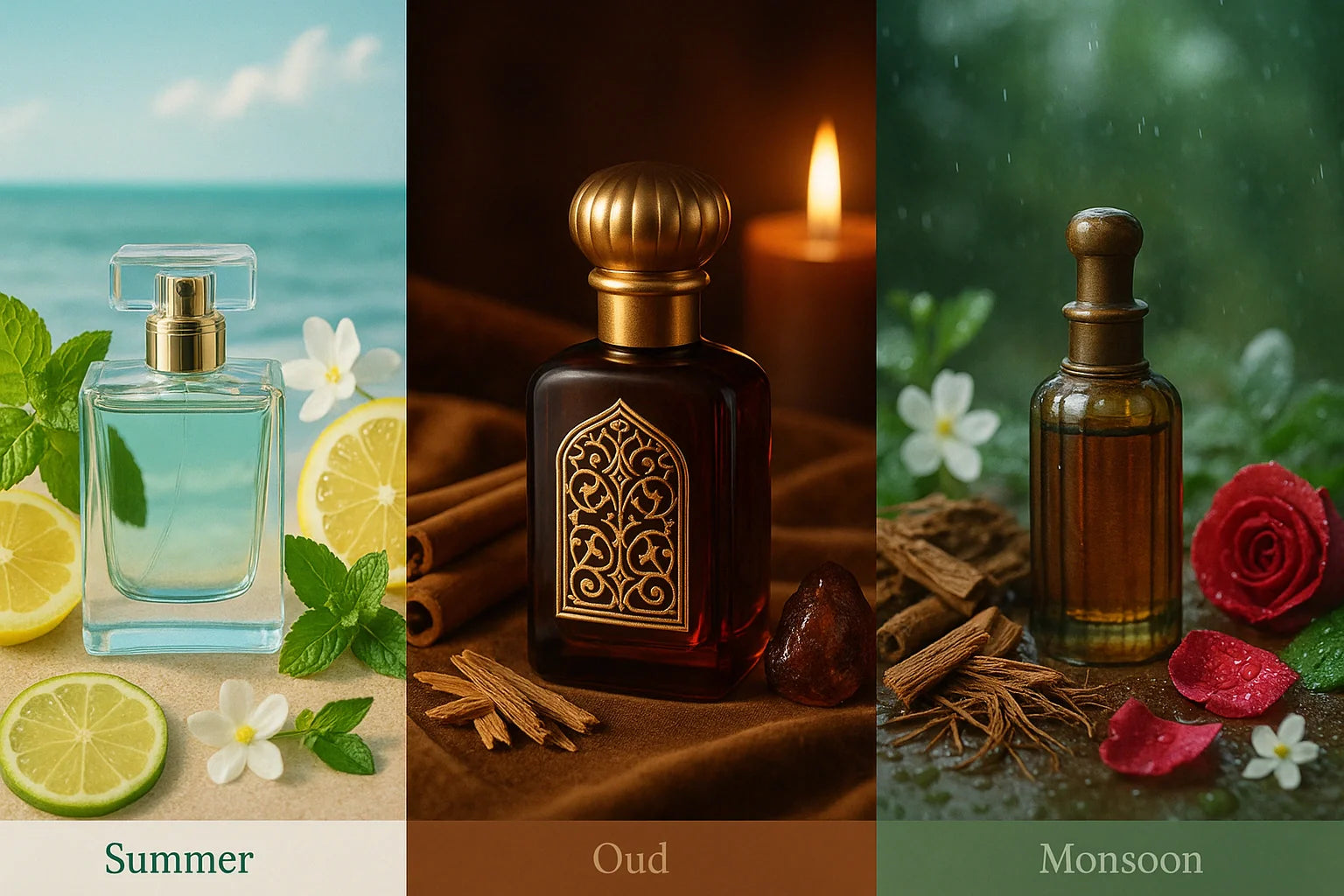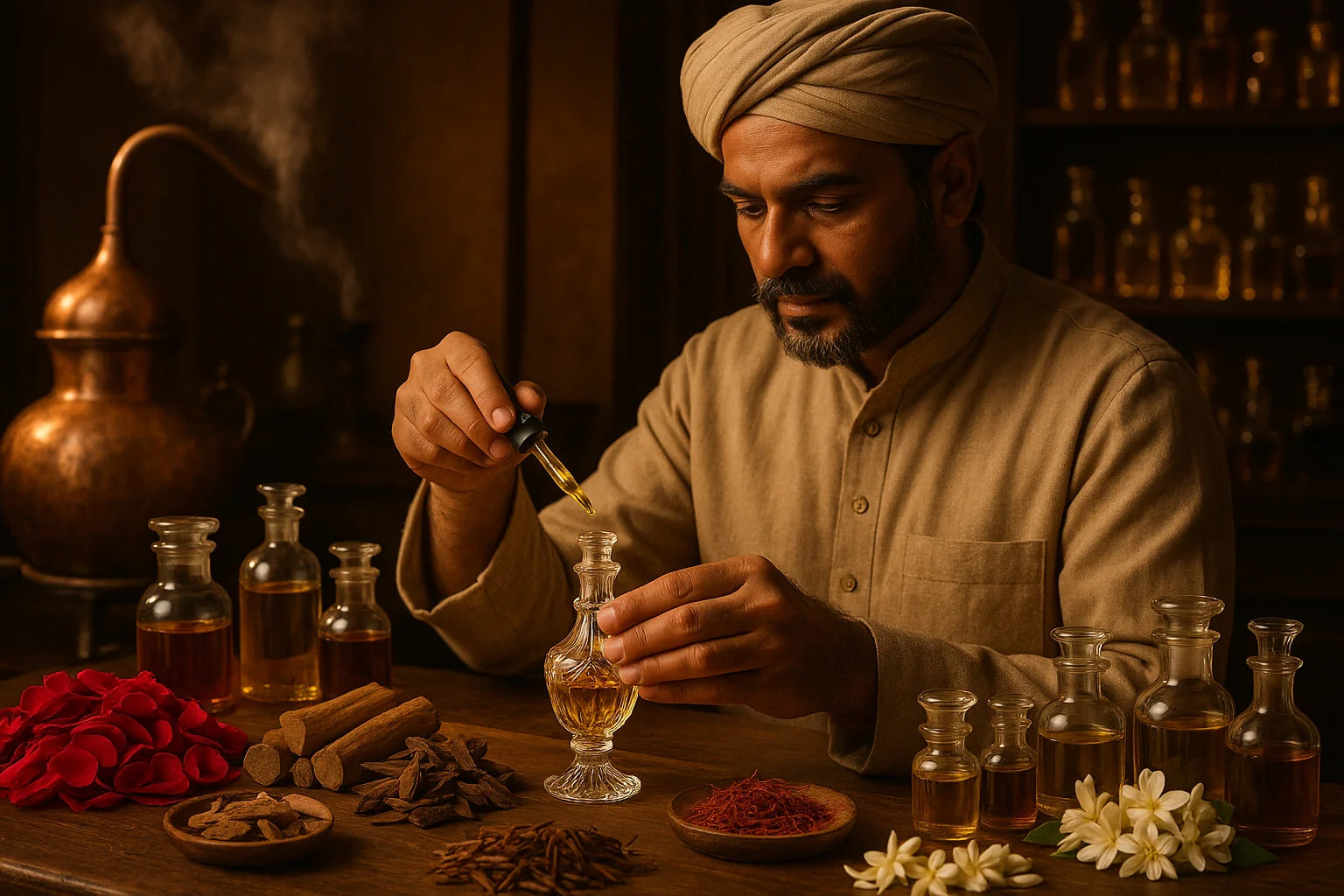
The History of Attars in Indian and Middle Eastern Culture
What Are Attars?
Attars, also known as ittars, are fragrant essential oils distilled from natural ingredients. Unlike synthetic perfumes, attars are alcohol-free and made through a delicate steam distillation process, often using traditional methods passed down through generations. This results in pure, long-lasting scents that connect deeply with nature and culture.
Origins in the Middle East
The story of attars begins in the ancient Middle East, particularly in Persia (modern-day Iran) and Arabia. Historical records suggest that as early as 3000 BCE, civilizations in Mesopotamia were extracting fragrant oils from flowers and resins for both religious rituals and personal use.
The word “attar” comes from the Arabic word “itr” meaning perfume. It gained prominence through Persian scholars and perfumers, who perfected the technique of steam distillation. Attars became prized commodities, traded along the Silk Road, spreading their influence across Asia, Europe, and Africa.
In Islamic culture, attars hold spiritual significance. They are often used in mosques and homes to purify the air and create a calming, sacred environment. Some famous Middle Eastern attars include rose, sandalwood, oud (agarwood), and musk.
The Journey to India
Attars reached India through trade and cultural exchanges during the Mughal era (16th to 18th centuries). The Mughals, known for their patronage of art and luxury, brought Persian perfumery traditions and combined them with Indian botanical knowledge.
Northern India, especially regions like Kannauj in Uttar Pradesh, became renowned centers for attar production. Known as the “perfume capital of India,” Kannauj preserves ancient techniques that date back over 500 years.
Indian attars often feature local ingredients like sandalwood, jasmine, vetiver, and saffron. These fragrances play a vital role in religious ceremonies, weddings, and daily life, symbolizing purity, prosperity, and celebration.
Cultural Significance
In both Indian and Middle Eastern cultures, attars are more than just scents; they are woven into the fabric of tradition and identity:
- Spirituality: Attars are used in prayer, meditation, and healing rituals for their calming and cleansing properties.
- Gifting: Presenting attars is considered a sign of respect and affection, often exchanged during festivals and special occasions.
- Royalty and Status: Historically, attars were reserved for nobility and royalty, reflecting luxury and refinement.
- Daily Use: Many people apply attar as a personal fragrance, appreciating its natural, long-lasting aroma without the harshness of alcohol-based perfumes.
Aromagic: Continuing the Legacy
At Aromagic, we are proud to carry forward this centuries-old tradition by blending authentic craftsmanship with modern sensibilities. Our attars are crafted with the finest natural ingredients, preserving the purity and depth that make them timeless.
Whether you seek a signature scent, a thoughtful gift, or a sensory journey into heritage, our collection invites you to experience the magic of attars — where history, culture, and nature unite.
Discover the essence of tradition. Discover Aromagic attars.











